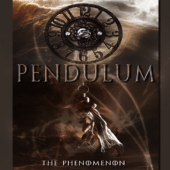What You Should Know About WMG’s Earnings Call: From Spotify Bundles to Executive Restructure

Warner Music Group’s stock was up around 3% Wednesday (Aug. 7) as investors optimistically received its fiscal third-quarter earnings report, which showed that streaming revenue continues to grow for the third-largest major music company.
On a call discussing the company’s earnings, Warner Music Group (WMG) CEO Robert Kyncl answered questions and shared his perspective on Spotify’s bundling controversy; discussed what WMG is doing to get more mileage out of its catalog; and shared a broad update on the company’s previously-announced $200 million cost savings/reinvestment plan — while remaining mum on the more recent executive restructure that’s been reverberating through the music industry since last week.
See below for three major takeaways from the call.
Trending on Billboard
Bundling is not inherently bad
Overall streaming revenue was up 5% for Warner this quarter, with recorded music streaming revenue up 8.7% — reflecting growth in subscription revenue of 7%. While that was welcome news to investors, the subject of Spotify’s contentious decision to bundle music and audiobooks — allowing them to qualify for the lower mechanical royalty rate reserved for bundles under the Copyright Royalty Board’s (CRB) Phonorecords IV agreement — did not go unmentioned. But in his opening remarks and later, during a Q&A period with analysts, Kyncl said the company derives its streaming earnings from a diversity of partners and appeared to tamp down talk of the controversy that erupted over the bundling policy.
“I know that investor attention has recently been focused on the dynamics between labels and DSPs, with some speculating that we’re adversaries playing a zero-sum game. That’s simply not the case,” Kyncl said. “We’re actively engaged with our partners around ways to drive growth for all of us. Streaming dynamics remain healthy … with plenty of headroom for subscriber growth in both established and emerging markets … across multiple partners. Also, price optimization and improvements in the royalty models will provide ongoing opportunities for additional growth.”
Kyncl went on to note that bundling, which could result in lower payments to songwriters, has been used in other industries, like TV, for the purpose of market expansion. “The job of wholesalers like the music companies is to ensure that the sanctity of our pricing are in line with each other. You can expect us to pursue that strategy,” Kyncl said. “As it relates to CRB, I don’t see it as something that will persist in the long term.”
Radio silence on executive restructuring
WMG executives did not directly discuss the internal restructuring plans made public last week, which led longtime co-leader of Atlantic Records and Atlantic Music Group chairman/CEO Julie Greenwald to announce she was stepping down on Tuesday (Aug. 6). During his opening remarks, Kyncl did highlight the “commercially and creatively … successful” partnership between WMG and 10K Projects — whose CEO/founder Elliot Grainge has been picked to succeed Greenwald — by noting English-Cypriot singer-songwriter Artemas’ single “I Like The Way You Kiss Me,” which reached No. 1 on Billboard‘s Global Excl. U.S. chart in April.
However, Kyncl did share details about a restructuring plan he mentioned on WMG’s last earnings call, which included selling the entertainment websites Uproxx and HipHopDX — with the overall goal to increase investment in music, technology and new skill sets and deliver $200 million in savings by the end of fiscal 2025.
“The majority of changes have already been implemented,” Kyncl said. “We are laying a strong foundation to accelerate our progress and yield greater value over time. We made improvements to our royalty systems and the tools used to identify unclaimed revenue, we overhauled our global supply chain, unlocking our ability to scale our third-party distribution business, and we’ve transformed our proprietary tools that identify fan trends while building new ways to engage with super fans.”
Catalog optimization is a major priority
One area where Kyncl is investing in technology is through a project he says is aimed at increasing the “performance of catalog…across all of our DSPs.”
Speaking of recent spikes in streaming for artists in Warner’s “deep” catalog — like Joni Mitchell and Tracy Chapman — as well as “shallow” catalog like Ed Sheeran, Kyncl said generating continued digital success stories for those acts is a top priority.
“We have a project on this across our technology and business teams to move down the entire catalog and make sure it’s properly optimized for streaming and on every large DSP,” he said on the call. “All of this augments our marketing campaigns against catalog which we have done in the past and continue to do and we’re applying more and more frontline focus on catalog.”

















